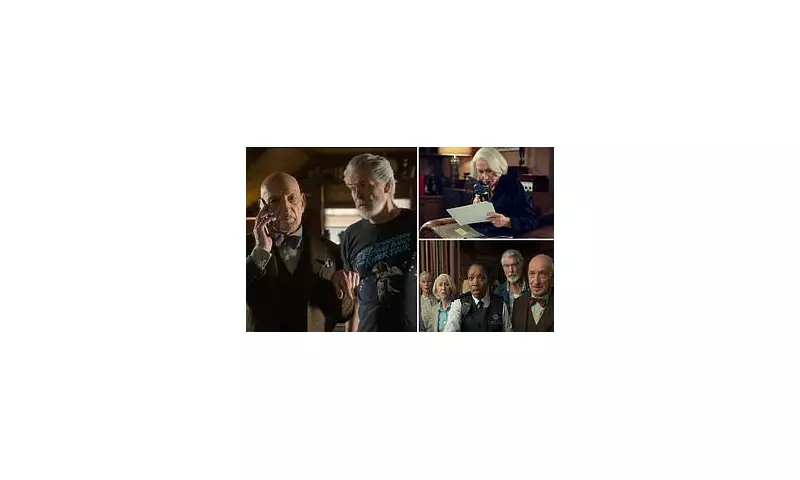
A major diplomatic storm is brewing over Netflix's highly anticipated adaptation of Richard Osman's bestselling novel, The Thursday Murder Club
A foreign government, understood to be a significant strategic ally of the UK, has formally complained to the streaming giant, labelling its depiction in the film as "deeply unfortunate" and demanding substantial changes. The complaint alleges the movie portrays the nation's officials in a negative and inaccurate light, potentially damaging international relations.
Behind the Scenes of a Silver Screen Spat
The controversy centres on the plot of the film, which sees the eponymous group of amateur sleuths from a sleepy Kent retirement village investigate a murder with international ramifications. The involvement of the foreign state's officials forms a crucial part of the narrative.
Sources suggest the government was caught off-guard by the portrayal, having been unaware of the specific details until the project was well into production. The complaint was reportedly filed this past Thursday, adding an ironic twist to the 'Thursday Murder Club' moniker.
A Clash of Creative Licence and Diplomatic Sensitivities
This incident highlights the increasing tension between creative freedom in the entertainment industry and the diplomatic sensitivities of nation-states. With global streaming platforms reaching audiences in every corner of the world, the potential for cultural and political offence is magnified.
Netflix now faces a delicate balancing act. It must decide whether to stand by its filmmakers and risk straining international relations or to make edits to appease a displeased government, potentially compromising the artistic vision of the project.
All eyes are now on Netflix's headquarters to see how it will respond to this unprecedented intervention. The resolution of this row will set a significant precedent for how global entertainment giants navigate the complex web of international politics in the future.





